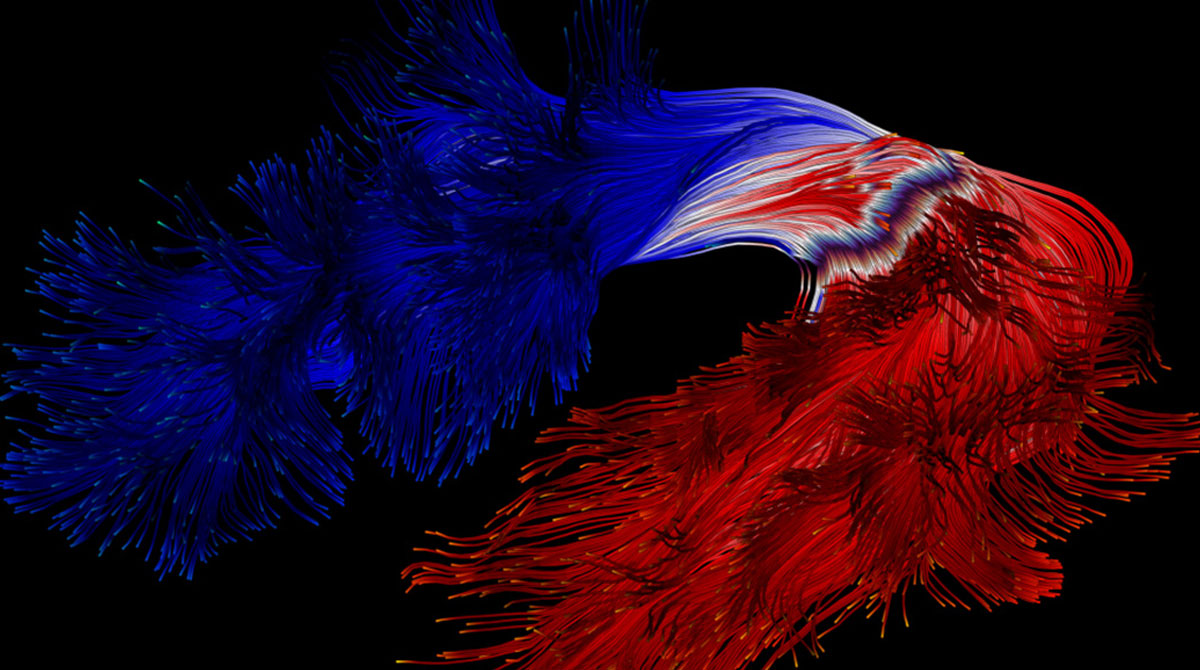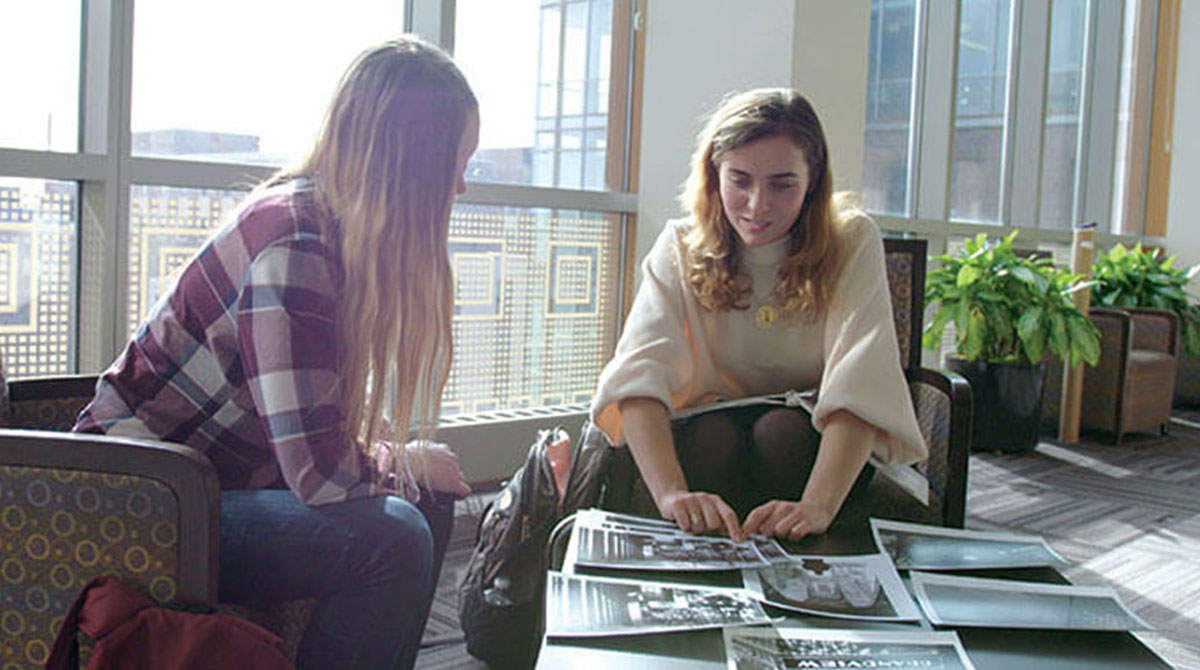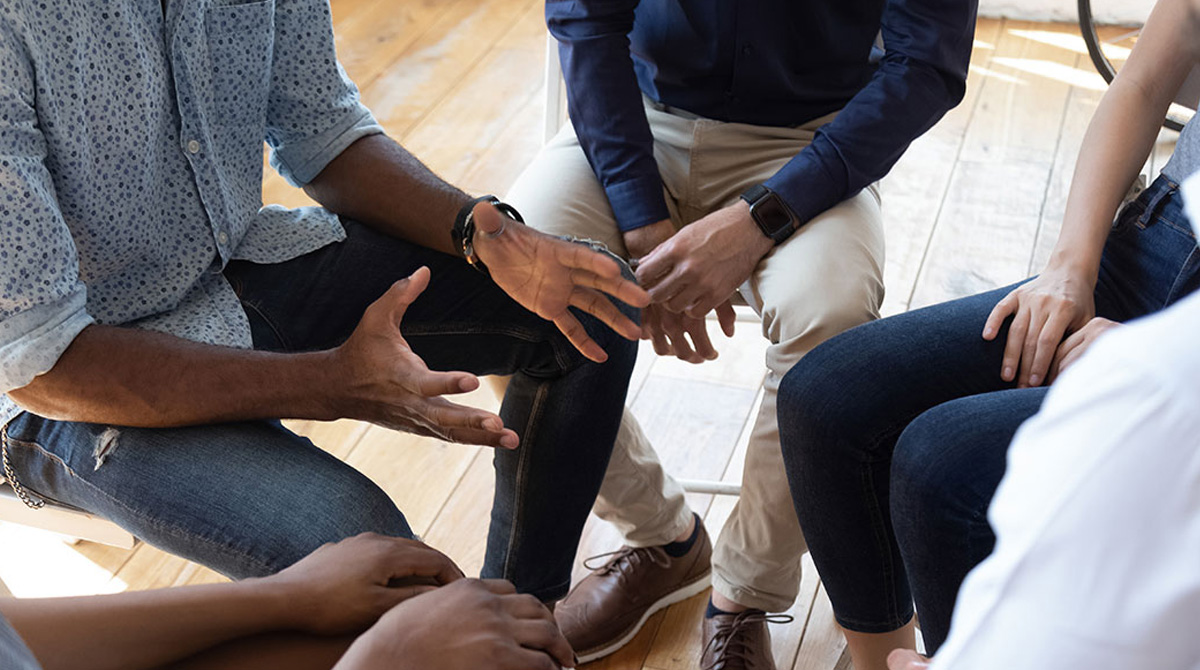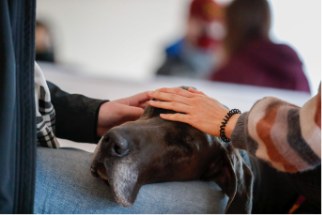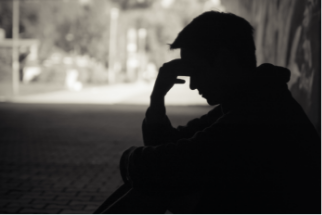Pioneers in wellbeing
For more than a quarter century, the U of M’s Earl E. Bakken Center for Spirituality & Healing has advanced whole-person health and wellbeing.

Pioneers in wellbeing
For more than a quarter century, the U of M’s Earl E. Bakken Center for Spirituality & Healing has advanced whole-person health and wellbeing.
#MindfulMonday from CHS Twitter:@UMNCSH
Twenty-seven years ago, Mary Jo Kreitzer had a bold vision: to parlay the burgeoning interest in alternative and complementary medicine into a cutting-edge educational and research unit at the University of Minnesota. Backed by University administration and bolstered by input from healthcare providers and other community stakeholders, Kreitzer founded the U of M’s Center for Spirituality & Healing.
The center has been a leader and pioneer ever since, with about 70 faculty members from diverse backgrounds, interdisciplinary academic offerings, and a robust research enterprise (about $20 million in federal funding over the last 5-7 years). While University-wide in scope, the Bakken Center has an administrative home in the School of Nursing.
It started by offering freestanding elective courses, Kreitzer says, then created a formal graduate minor in integrative therapies and healing practices as well as a graduate certificate. In 2005, the University became the first to offer a master’s degree in health coaching, and the center’s faculty worked with a national organization to create certification in the field.
The center now offers 60 courses with about 1,000 students per semester, and other fields of study include arts and healing, nature-based therapeutics, mindfulness, and more.
Kreitzer is proud that the offerings draw students not just from the health sciences but from collegiate units all around the University—“from architecture, the business school, and people interested in contemplative law,” she says. “I think a whole-person perspective resonates with a lot of different fields and disciplines.”

Taking Charge of Your Health and Wellbeing
The center bolstered the “Taking Charge of Your Health and Wellbeing” website and expanded content on the site’s “Student Corner” section. The website now gets 2.5 million unique visitors a year around the world.
Poised for a pandemic pivot
In 2020, when the worlds of education and health care turned upside down, the Bakken Center navigated a rapid transformation.
“When the pandemic hit, we were really well-positioned as a team to be able to be flexible and nimble, shift our focus, and expand what we do virtually,” says Kreitzer. “There were just a whole lot of different audiences to reach. It almost felt like there was an insatiable need for information, resources, and perspectives to share.”
So the center shared. Some of its webinars and other offerings became online and free, and others shifted to “pay as you can” pricing to acknowledge the financial struggles of consumers.
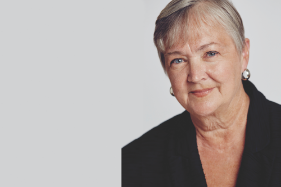
In about the third surge of the pandemic, when health professionals and other essential workers “were just hollow,” Kreitzer and colleagues started the “You Do Matter” series. Among its features were two-minute videos on topics such as dealing with anger and other emotions.
The center bolstered the “Taking Charge of Your Health and Wellbeing” website and expanded content on the site’s “Student Corner” section. The website now gets 2.5 million unique visitors a year from users all around the world.
A vast array of academic offerings
Courses at the Center for Spirituality and Healing generally fall under one of eight focus areas: Arts and Healing, Health Coaching, Integrative Nursing, Mindfulness, Nature-Based Therapeutics, Yoga and Tibetan Medicine, Whole Systems Healing, and Nourishing Minnesota.‘Healthier human beings’
Even with all the increased outreach to healthcare professionals and to a broader population thirsty for wellbeing tools, students remain the focal point of the center’s work.
“They take our academic course offerings for a variety of reasons,” Kreitzer says. “Some students take them for professional development, and they recognize having a background in some of these whole-person integrative approaches is going to be advantageous in their careers. Others take them for personal growth and development. And I think both are really valid reasons.”
For Angelica Walton, who is finishing up her Doctor of Nursing Practice (DNP) in Integrative Health and Healing program (through the School of Nursing), it’s about integrating the human component into caring. And she’s uniquely qualified to weigh in, having served for six months in COVID ICUs in downtown Chicago.
“What the DNP program offers is really a pathway—a bridge—to being able to integrate these whole-person concepts into a conventional system,” Walton says. It’s incorporating mind-body-spirit components to how we navigate providing healthcare, not only to others but to ourselves. It’s inclusive of caregivers as well as those they’re serving.”
And Kreitzer notes that from the very beginning, student wellbeing has been a top priority. “My hope always is that by the time students leave the University of Minnesota they have learned skills that are going to be helpful in terms of their career, and that they leave as healthier human beings—with more wellbeing in their lives,” she says. “Anything we can do as a university to help nurture that, we should be doing.”
‘Mindful Mondays’: A community multiplies
Early in the pandemic, Mindful Mondays—an hour-long mindfulness session based on light movement and guided meditation—switched to a free online format. There were 40 or 50 participants at the start, according to Mariann Johnson, wellbeing and mindfulness instructor at the Bakken Center for Spirituality and Healing.
That number quickly swelled to near 500: U of M students; alumni; faculty and staff; and community members and groups like senior centers, businesses, and schools. A university in California links to Mindful Mondays as a resource for its students and faculty.
“We’re a community, and there are people who come every single Monday,” beams Johnson. “And at the start of the pandemic, I really wanted to make it feel like, ‘We’re all in this together and we need each other.’ Teaching it, even online, it was palpable to me that we have this group of people who were committed not only to their own wellbeing but to supporting each other. That just really inspired me and kept us going.”
Mental Health Resources
Learn more about the many resources on the Twin Cities campus.
YOU@UMN is a personalized digital platform connecting students to online tools and campus resources. Visit YOU@UMN
If you or someone you know is suffering from a mental health crisis, the University of Minnesota is here to help.
24-Hours Crisis Line: 612-301-4673
24-Hour Text Counseling: Text "UMN" to 61222
- Categories:
- Health
- Political science
